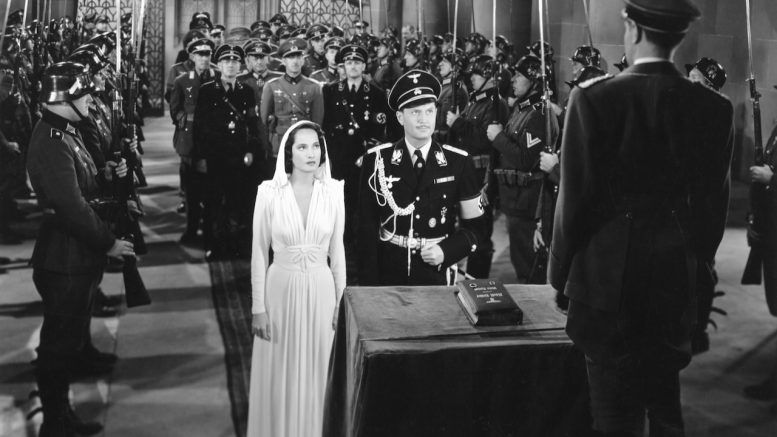Dorothy Arzner is someone I had never heard of before, and maybe you haven’t either. Arzner was the only director of films in Hollywood under the studio system of the 1930s and 1940s and she made some pretty remarkable films in those years. Her work is currently being celebrated at the BFI in London and this week I got to see her last film, First comes courage.
Here is how BFI described her: “Her films were multifaceted revisions of Hollywood norms, paying sharp attention to the intersection of women’s working and romantic lives. Her protagonists were snappy and headstrong, subverting traditional gender roles on a mission to determine their own identity.”
Subversive women in subversive films — that was certainly on show in First comes courage. This largely-forgotten film, which did not do well at the box office, was one of several made in 1943 that told the story of the Norwegian resistance to the German Nazi occupiers.
Nicole Larsen, played by Merle Oberon, is a secret member of the anti-fascist resistance who has seduced a senior German officer, Major Paul Dichter. He confides in her military secrets which she passes on to London, through her eye doctor. But the Germans grow suspicious, and eventually even her lover begins to have his doubts.
The climax of the film is a chilling marriage forced upon Nicole, in a church full of uniformed Nazis, with Hitler’s book, Mein Kampf, used instead of a bible. At the same time as Dichter is marrying his lover, he has tested her loyalty by feeding her information to see if it is passed on to the Allies. Just before the wedding ceremony begins, he learns that she is, in fact, part of the anti-fascist underground.
As all this is going on, Captain Allan Lowell, a former boyfriend of Nicole’s, who is now an officer in the British commandos, comes over to Norway to kill the German officer. Things do not go according to plan and the film ends in something similar to the ending of the far-better-known (and better film) Casablanca.
Allan wants Nicole to return with him to the safety of England, but she responds with a powerful speech about how she’ll be more useful staying behind in Norway, and how if he won’t quit fighting the fascists, she won’t either. In a sense, she’s giving a version of the speech that Humphrey Bogart delivers at the end of Casablanca.
She tells him: “Oh but darling it isn’t that kind of world any more. People don’t dance and laugh and ski, as we once used to.”
As Judith Mayne wrote in her book about Dorothy Arzner, “Nicole expresses views that are more typically expressed by male heroes … [the film] twists the gender conventions of the war/spy genre, and in the process, celebrates women’s work, not as love or romance, nor as a substitute for love and romance, but as what makes everything else possible.”
Arzner, who lived openly as a lesbian, challenged gender and sexual norms her entire life. Her long-forgotten last film is a bold statement of her views which we can see now were clearly ahead of her time.
Well done to the BFI for allowing a new generation of cinema lovers to see such a challenging, powerful and unusual film about the fight against fascism.
This article appears in the current issue of Solidarity.
